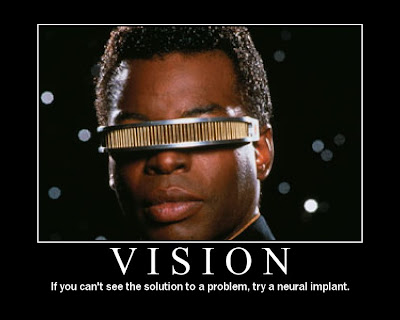 The South African state is imploding. Although there is not a moment to spare, we can still avoid the coming crash if we act quickly enough. But, first, there has to be an official acknowledgement that there is a crisis. Astonishingly, denial of the crisis remains the mainstay of President Thabo Mbeki and leading officials in his inner sanctum.
The South African state is imploding. Although there is not a moment to spare, we can still avoid the coming crash if we act quickly enough. But, first, there has to be an official acknowledgement that there is a crisis. Astonishingly, denial of the crisis remains the mainstay of President Thabo Mbeki and leading officials in his inner sanctum.The African National Congress is now almost functioning like two separate parties: Mbeki in charge of the government; Jacob Zuma heading the party proper. Unless the leadership in the ANC is sorted, there is little prospect of fixing the country's mountain of problems.
Because of the failure of the state to protect ordinary citizens against crime, provide electricity or help families living in desperate poverty, its very legitimacy is now being undermined.
Individuals, NGOs and civil groups have responded to the xenophobic violence. The government has been paralysed. Mbeki's authority has eroded. The ANC's hold on its members is fading. In the provinces, branches and affiliate structures of the ANC, ordinary differences have now turned into violent conflict.
This is nothing but a national emergency, which calls for extraordinary steps. Parliament must be dissolved. Next year's general election must be brought forward to give the government a new mandate. Mbeki must step down as president immediately. The ANC must call a special national conference to make the leadership decision, rather than wait for the provincial conferences to be completed by spring or for a list conference thereafter.
Because this is a national emergency, the ANC leadership must offer the job as South African president to ANC deputy president Kgalema Motlanthe, to ANC treasurer Mathews Phosa or to ANC national executive committee member Cyril Ramaphosa. Zuma can remain the party's president.
This would be an extraordinary step for the ANC, but not an unprecedented one. When the ANC was banished in the early 1960s and core leaders such as Nelson Mandela were sent to Robben Island, Oliver Tambo was lifted to the presidency of the party. Motlanthe, Phosa and Ramaphosa represent a clear generational change -- and a clean break from the two factions currently paralysing the government and ANC.
South Africa has arrived at a tipping point in its post-1994 history. The black majority want the dividends of the democracy. They will no longer wait patiently for the benefits of post-1994 economic growth to trickle down to them while comrades who are more politically connected flaunt their new-found riches. They want jobs, food, affordable education, healthcare, electricity, public transport and other social services -- and they want it now.
The devastating effects of high interest rates and rampant food and fuel inflation, combined with corruption and poor delivery of basic services, are a catalyst for eruption. Furthermore, the majority want their voices to be heard by the government and ANC. This is the clear message from the protests against poor service delivery that preceded the xenophobic violence.
So far, Mbeki and the government have ignored these voices. Finance Minister Trevor Manuel has stone-heartedly played down the real-life urgency of high food prices, astonishingly saying the government is reluctant to provide emergency relief to families struggling desperately to make ends meet because the recipients will spend it on alcohol. We have lost our humanity.
In sheer desperation, many want Zuma to take over as quickly as possible. But this will not end the leadership vacuum. The opposition in and outside the ANC against Zuma is intense. It is difficult to imagine a leader as morally compromised as Zuma effectively leading the rejuvenation of democracy in the ANC and South Africa. Even if Mbeki were gone, Zuma's continuing legal battles would continue to paralyse the government, erode public confidence and undermine democratic institutions.
Zuma must take his cue from Oskar Lafontaine, the former German Social Democrats leader. Although at the time the most widely supported among the party's feuding factions, he sacrificed himself for the sake of the country and the party.
In the ANC's near-century of existence, the left has often come to the movement's rescue when its moral compass went astray. Now the left itself appears to have no comprehensive imaginative vision for the totality of South Africa. Rejuvenating our democracy, our stagnant political culture and democratic institutions, and dealing with poverty and inequality, demands fresh ideas and leaders. Zuma is compromised, Mbeki discredited and the left too consumed by capturing the ANC, seeking revenge and idolising flawed leaders.
William M Gumede is the author of Thabo Mbeki and the Battle for the Soul of the ANC
0 comments:
Post a Comment